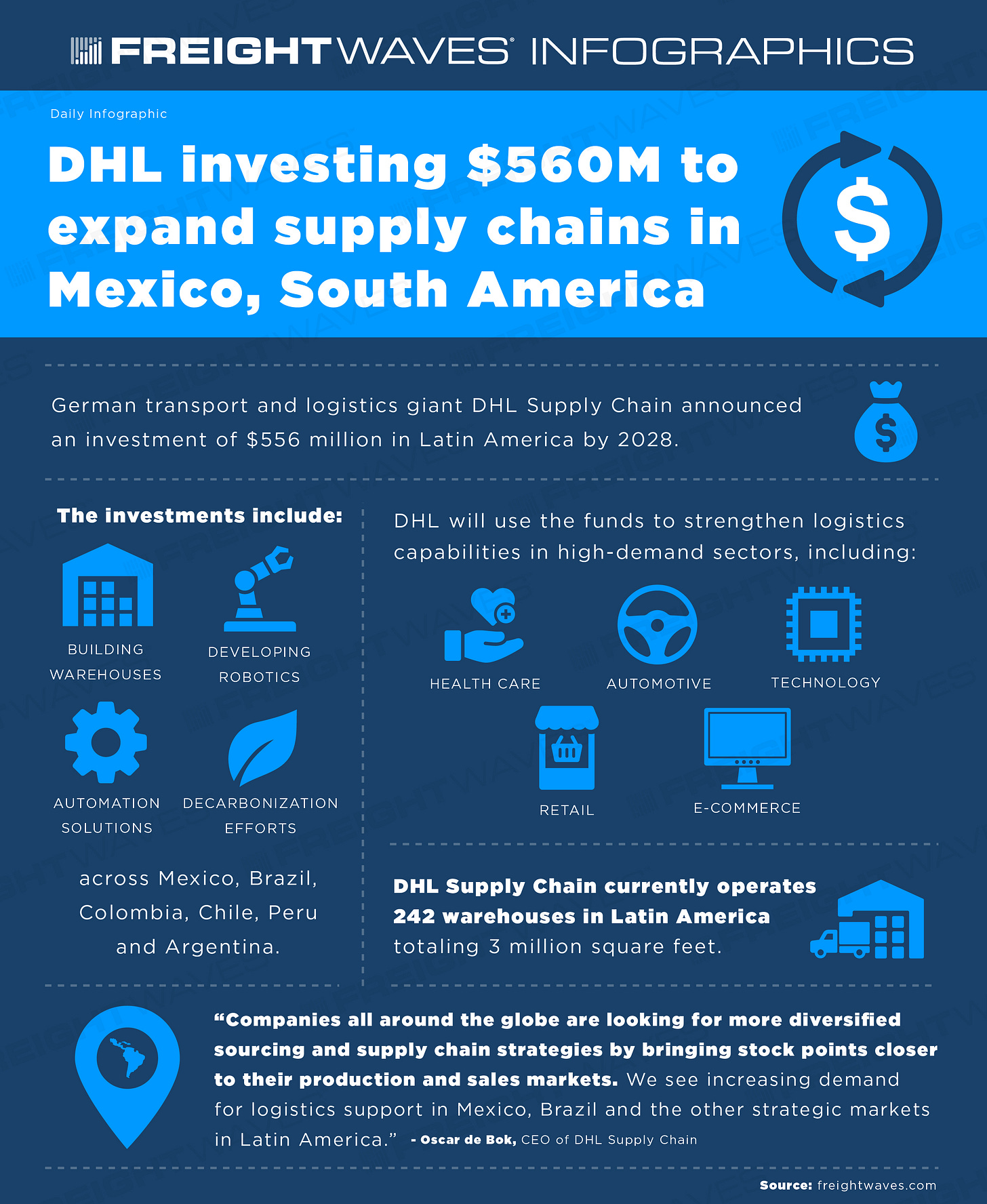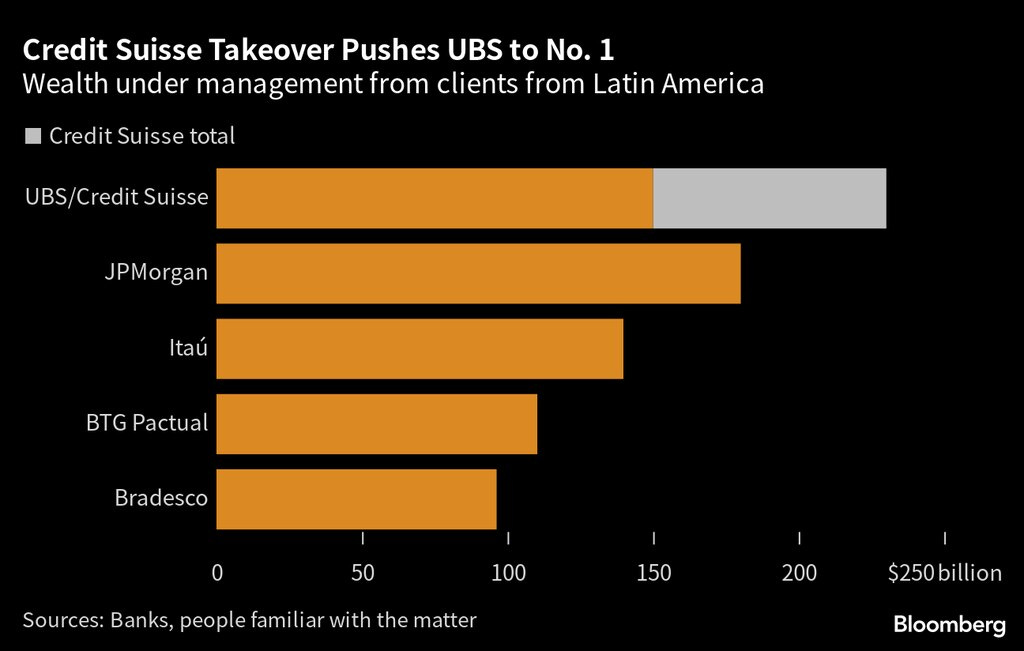Weekly Roundup
Top headlines and news impacting Latin America and Africa commercial real estate.
📰 German Shipper DHL Investing $556 Million in Latin America
Part of the investment is to build, develop and adapt its real estate assets and warehouses in the region. It has 240 locations in the region with recent real estate expansion announcements in Brazil, Mexico, and Chile.
📰 Burger King Colombia Has a $10 Million Expansion Plan
The burger chain has opened a 5,000 ft² (i.e., 468 m²) flagship restaurant in Bogota open 24-hours, with free WIFI, and coworking, playground, bicycle and pet areas. 60 free-standing stores are planned in several cities in Colombia. Burger King also trades in Mexico, Venezuela, Chile, Argentina, Brazil, Bolivia, Ecuador, Guyana, Paraguay, Peru, Uruguay and Suriname.
📰 Argentina Turns to China to Help Service Massive $44 Billion IMF Loan
China steps in to assist the left-wing Argentine government to pay IMF loan payments with $1.7 billion worth of currency swaps. Further support will come from the Development Bank of Latin America. Argentina is able to maintain its $8 billion reserves with the move and pay the IMF with Renminbi to service the $44 billion loan (largest in IMF history) incurred in 2018. The terms of the swap are kept secret by the governments.
📰 Mexico Retail is Dominated By a Handful of Anchors
Liverpool, Cinepolis, Sears, Walmart and Soriana are the anchor titans occupying more than 16 million ft² (i.e., 1.5 million m²) in Mexico City, Guadalajara and Monterrey. Lack of anchors makes it harder for new developments to launch, and most of the competition is in the grocery space. Liverpool competes with developers by often developing its own real estate.
📰 UBS Looking to Sell Credit Suisse’s Real Estate Manager in Brazil
UBS is resuming the sale of Credit Suisse’s real estate manager in Brazil with more than $2 billion of AUM. It contains at least 8 stakes in listed real estate funds in Brazil. UBS acquired Credit Suisse this year and wishes to focus on wealth management in Brazil, not real estate management and investing. Only a handful of local players are capable of making the purchase.
📰 Inflation of 23% Impacting Nigeria’s Retailers
The storm of raw material prices, freight costs, foreign exchange depreciation, and inflation are squeezing Nigeria’s retailers. 6 out of 10 Nigerians have switched consumer brands over the last year to cheaper brands. They are spending less and prioritizing saving for a rainy day, wellness, and experiences. 78% of Nigerians believe the economy is in a recession.
📰 Nairobi Retail Shifts to Convenience Retail
64% of Nairobi’s major retail developments are on hold attributed to over-supply. The focus has shifted to smaller neighborhood stores with only 2 shopping malls opened in the capital city in 2023 so far. Many tenants prefer big malls due to security concerns, and to reach more customers. High land prices in Nairobi hinder larger developments.
📰 IHS Receives $20.9 Million from IFC to Develop & Acquire 5,000 Affordable Housing Units
The IHS Kenya Housing Partnership is a newly created 10-year closed-end fund to be managed by International Housing Solutions (“IHS”). IHS is an established affordable housing investor in Southern Africa. The Fund has a target of $140 million. IHS is owned by Hunt Companies, a large Texas real estate developer and operator.
📰 South Africa Proptech Comes Into Focus Following $10 Million Commitment
REdimension Capital raised ZAR 200 million from investors such as Investec Property Fund, Growthpoint and Rand Merchant Bank. It seeks to invest in new technology within the South African property industry. It expects a final close in Q1 of 2025.
📰 Shelter Afrique Lists $111 Million Bond in Nigeria to Build Housing
The Pan African Real Estate firm plans to deliver 1,100 housing units with the proceeds. The bond was oversubscribed in April, had an AA rating, and was supported by pension funds, banks and insurance companies. The 5-year was priced at 13%, the 7-year at 13.25%. Nigeria’s housing market is bedeviled by poor regulations, inadequate foreclosure laws, and dearth of reliable data.








